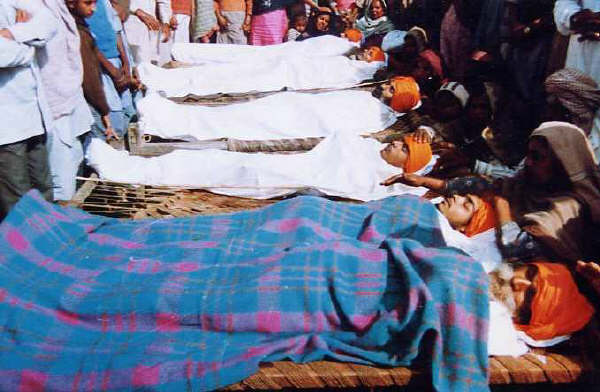NEW DELHI—The Supreme Court of India has issued guidelines making police accountable for fake encounters. The new directive was passed due to the increase of fake encounters and custodial deaths. The guidelines will require proper investigation by state criminal investigators, and punitive action in cases of deaths in police custody, along with fake encounters. Fake encounters are incidents in which the police apprehend, and many times torture, a victim before placing them in a staged situation where they are then gunned down by police. These encounters have continued in Punjab and India along with custodial deaths. Such incidents were common during the 1980s and continued until the late 90s, in which Sikhs were targeted by police on orders of senior officers.



Sikhs organizations such as Ensaaf, and Khalra Mission Organization have exposed a number of such heinous crimes by the Punjab Police. S. Jaswant Singh Khalra had unearthed proof of thousands of fake cremations, in which civilian Sikhs were killed and cremated after fake encounters. S. Khalra too was later abducted by the Punjab Police and killed in police custody.
The new directive will require the police to keep a written or electronic log, along with any intelligence reports relating to so-called “terrorists”, before attempts are made to arrest them. If in any case an encounter takes place, the police must file a case immediately.
The directive was passed by a bench headed by Chief Justice RM Lodha, who further started that any weapons that are used in the encounter should also be surrendered for ballistic tests. The bench also demeaned a so-called “bravery award” which is often given after such encounters.
The directive was passed after intervention by a PIL (Public Interest Litigation) filed by the People’s Union for Civil Liberties’ (PUCL). PUCL had asked the court to pass a directive barring senior officers from promoting police responsible for encounters until investigations were complete. It further sought that a human rights commission must complete such investigations before financial rewards, along with promotions, were granted. Although the Supreme Court has passed this directive, it ruled against the involvement of human rights commissions.
Although this is a great victory in India—where such encounters are still common—without investigations by human rights organizations, such cases can never be brought to closure as state criminal investigation agencies are often under pressure from the local governments to close files of cases pending against police staff.




